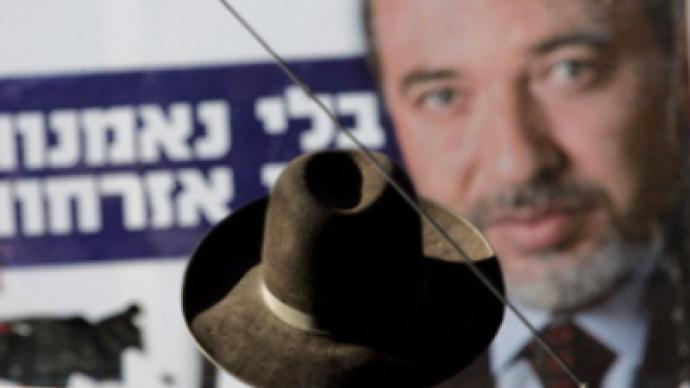Can Israel afford a lurch to the right?

In a “what the hell” moment in Israeli politics, citizens voting in Tuesday’s national elections will turn away from compromise with the Arabs, polls predict, and opt instead for blunt confrontation.
An overwhelming right-wing vote is forecast by all polls after a campaign in which the issue of peace hardly figured, even as rhetoric. If the polls are correct, most voters have decided that peace is for now an illusion and that they may as well indulge their desire for strong leadership rather than pursue an ever receding rainbow.
The leaders of the main parties are three macho men – two former commando officers and a former nightclub bouncer, none of them holding out olive branches – and a woman determined to prove she’s as tough as any of them.
The militant mindset of the electorate and its leaders stems from a feeling that there is no viable Palestinian entity with which to make peace. The firing of thousands of rockets from the Gaza Strip into Israel since Israel unilaterally withdrew from the area is viewed as clear evidence that the Palestinians are less interested in building a state of their own than in eliminating the Jewish state.
Outgoing Prime Minister Ehud Olmert declared his intention at the beginning of his term three years ago to withdraw unilaterally from parts of the West Bank. However, the example of Hamas in Gaza soon ruled out that possibility for fear that militants would similarly stage rocket attacks against Israel’s heartland from any areas on the West Bank that Israel vacates.
Polls indicate that Likud, led by Benjamin Netanyahu, will take more seats than any party in the next Knesset. However, the surprise of the campaign has been the strong showing by the right-wing Israel Beitainu (Israel Our Home) Party led by Avigdor Lieberman who worked as a bouncer in Moldavia before emigrating to Israel in 1978 at the age of 20. He has in the polls far surpassed the Labor Party led by Ehud Barak, Israel’s most decorated soldier.
Lieberman does not have a military background but his hard-line pronouncements and his bouncer’s build make him seem a genuine tough guy, which is what much of the public is looking for in face of the challenges facing Israel. When Egyptian leaders made hostile statements several years ago, Lieberman said that if it ever came to war Israel had only to bomb the Aswan Dam to flood the Nile Valley and devastate the country. He made similar warnings about bombing Teheran and termed the peace process with the Palestinians a sham. “He has Russian blood,“ said an immigrant from the former Soviet Union admiringly of Lieberman. ”Stalin, Putin – that’s what we need.”
A woman, asked whether she would vote for the only woman candidate, Foreign Minister Tzipi Livni, replied that she was voting for Lieberman. “We don't need a woman,“ she said. ”What Israel needs now is a man's man.”
Netanyahu and Lieberman, together with a gaggle of smaller right-wing parties, could easily establish a right-wing government, if the polls are correct. Netanyahu, however, has said he prefers a centrist, unity government that could rally the nation behind the strong actions that might be required in the coming term, including a possible confrontation with Iran. For this, he has indicated that if elected he would consider offering Barak to stay on as defense minister.
Netanyahu has also said he would seek to crush Hamas – “We will finish the job in Gaza”.
Barak, whose role as defense minister in the Gaza War drew wide acclaim from all parties, appears willing to serve in a Netanyahu government, if asked. The two men had served in the same crack commando unit as young officers.
Livni, who heads the Kadima Party, is running a close second to Netanyahu in the polls and is the only one of the four candidates to have brought the subject of peace into her campaign. “There is a dove on the sill,“ she said. ”We can open the window and let it in.“ She did not, however, linger on the subject long, devoting her campaign mostly to attacking Netanyahu and Hamas. ”The only way we will relate to Hamas is by smashing it.”
She went further than the other candidates on the sensitive subject of the Israeli soldier held captive by Hamas, Gilad Shalit, when she said that the national interest might not permit the release of hundreds of convicted terrorists in exchange for him as Hamas is demanding. She said she would feel the same if her own son had been captured. The biggest problem for any right-wing Israeli government may prove to be not the Arabs but the new American administration which has set its sights on banging heads together in the Middle East until the parties beg for peace.
Abraham Rabinovich for RT














